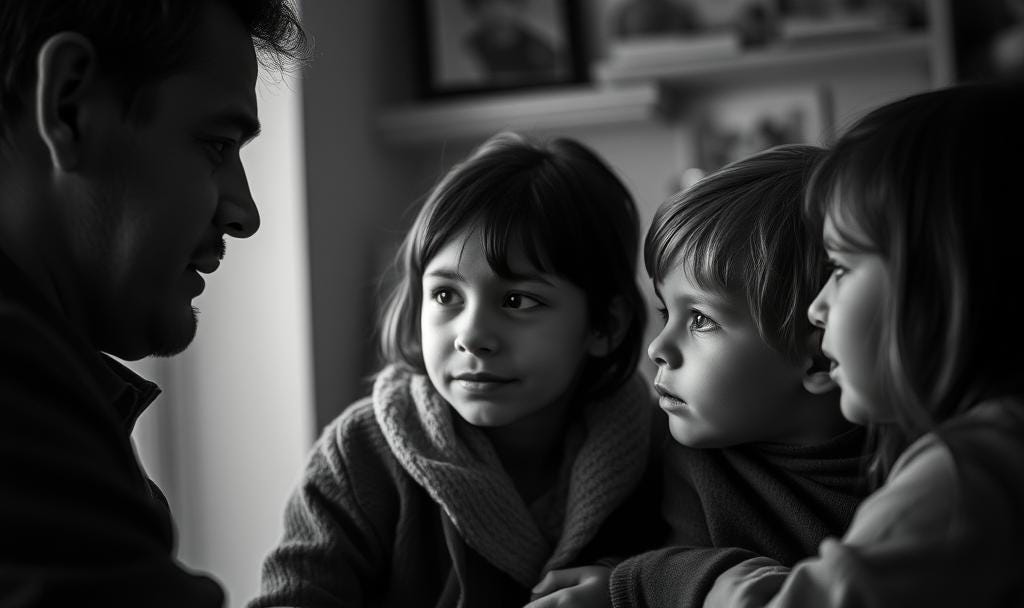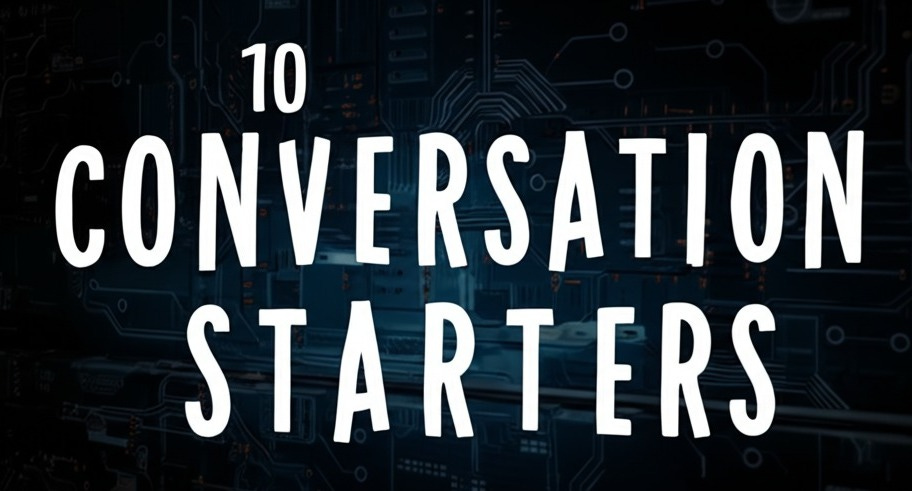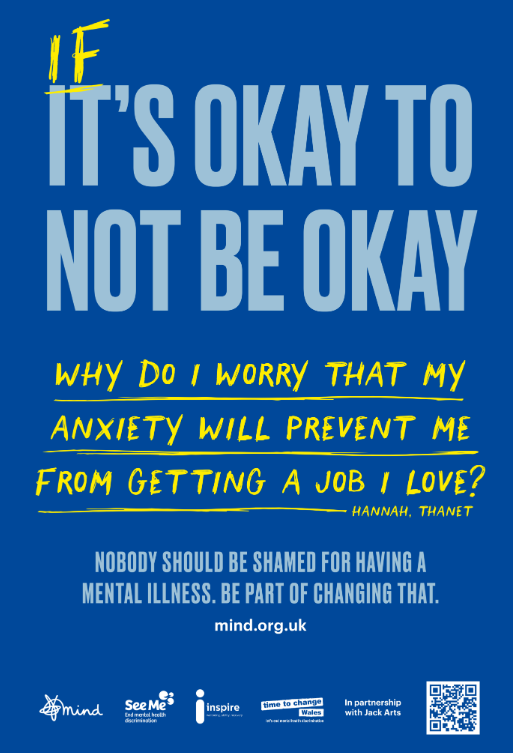No Such Thing as a Stupid Question: Fostering Open Communication
Supporting your childs mental health - 10 conversation starters for parents
In my opinion, it is very important to equip parents, guardians, and teachers with the information they require to hold an informed conversation about mental health with children. As you know, I often advise that it is essential to have open and honest communication with your children without judgment. This will be very helpful for you when trying to support their mental health.
SUPPORTING CHILDREN'S MENTAL HEALTH
10 Conversation Starters for Parents
Talking about mental health is always quite difficult at any age, but discussing it with children can be even more challenging.
It can seem easier to put off raising the subject, not wanting to discover issues or raise overwhelming subjects that you perceive your child is too young to confront.
Instead of keeping them in the dark, it is better that you learn how to confidently talk to them about mental health so that they feel comfortable talking to you about their mental state, and this will also help to remove any stigma before it can begin.
1. LISTEN
This sounds obvious, but even though we have two ears and only one mouth, it is not something we are always great at. Active listening is something that I was taught during my RAF Police training and is about listening without interrupting or making judgements and showing an interest in what you are being told. If your child feels listened to with the “small issues”, they are going to be much more likely to talk to you about the “big issues” should they arise.
2. If It’s Okay
This is a campaign from the amazing people at MIND. Everybody has heard “It’s ok not to be ok”, and it was certainly a line I have heard many times during my ongoing struggles with C-PTSD. But for many people struggling with mental illness, myself included, it didn’t feel like it was okay.
They do a great job talking about the challenges of understanding mental health, giving great advice and signposting resources.
3. There Is No Such Thing As A Stupid Question
Now, I am the first to admit that I have challenged that statement on many occasions with some of my questions; however, when it comes to serious subjects like this, which impact people’s lives in many ways, I believe it is a true statement.
This also relates to the first point because if your child knows that they can ask you questions about the smallest of things without any judgment or feeling silly, then they know they can ask you about serious issues.
4. Be Open and Honest
As with most people, children appreciate honesty, especially if you have a difficult topic that you need to discuss with them. How you discuss a subject with a child will always vary greatly depending on the age of the child. Talking to a younger child about trauma would be very different from how you would discuss it with an older teen as their maturity, experience and understanding of trauma will be different.
5. Know When to Seek Help
You will be the best judge of the severity of the mental health difficulty that your child may be dealing with. Is it something that is preventing your child from functioning normally in everyday life? How often are they being affected, how long does it last, and is it persistent?
Talk to your child about your concerns for them and that they might need more support beyond that of friends and family.
6. Talk About Mental Health Naturally
If you make mental health something that is spoken about during normal life, it will normalise talking about feelings. Sometimes, the usual “Are you ok?” is not enough to create opportunities for dialogue. These are times when you might want to talk about your own experiences, “When this happened to me, I remember feeling like this”, “Is that how you are feeling?” It automatically lets them know that they are not alone and that what they are feeling isn’t abnormal in any way.
7. Empathy
Where we might think of something as trivial or silly, a child could be worrying a great deal about it because, at their age or stage in life, it could be the biggest concern in their life. I remember when I was younger, being very aware of how others thought of me and appearing silly, whereas now I don’t care what people think 🤔 😏
Children will likely need our kindness and understanding when they are brave enough to show their vulnerability and share their worries and concerns with us.
8. Allow Your Child To Feel Safe
Try and think back all those years to when you were a teenager; unlike me you may even be able to! Teens can often feel like talking about their worries or concerns can make things worse.
You will want to reassure them that you can work together to make a plan of action about how to recognise the issues and what the next steps should be to deal with it. If you are dealing with a younger child you will likely need to lead the conversation and explain the next steps to them.
9. Language Timothy!
Always try to be mindful of the language that you use around the home when talking about or describing mental health. Stigma around mental health can often arise because of misconceptions and the language used.
Over the years, I have heard ‘Mental,’ ‘man-up,’ or other terms when talking about my mental health, and it is certainly the kind of language that will prevent your child from wanting to open up about their mental health.
10. It Is Ok Not To Know What To Do Next
Just because we are adults it does not mean that we have all the answers and to be honest we rarely do, but children on the other hand tend to think they know everything! It is ok for you to acknowledge they are experiencing something that you have never come across, but that together you will work through it and seek the right help at the right time.
Sources of Information and Support
Your GP - Should often be your first point of contact to discover what resources are available locally to your child
Young Minds - https://youngminds.org.uk
NHS Resources - https://www.nhs.uk/conditions/stress-anxiety-depression/
Parent Talk - Active listening guide for parents
Hopefully, this has been useful for some of you as I mentioned in the beginning you really are the best person to judge when your child is not themselves and this guide should help you to approach them in the right way to be able to tackle any issues that they may be navigating in their lives and it could just be the intervention that will save them from going down a very difficult and uncertain path.
As always I am happy to receive any suggestions or comments on my writing and am here to assist with any questions that may have arisen for you.
Please do share this across your social media platforms, and if you are on BlueSky, you can connect with me there






